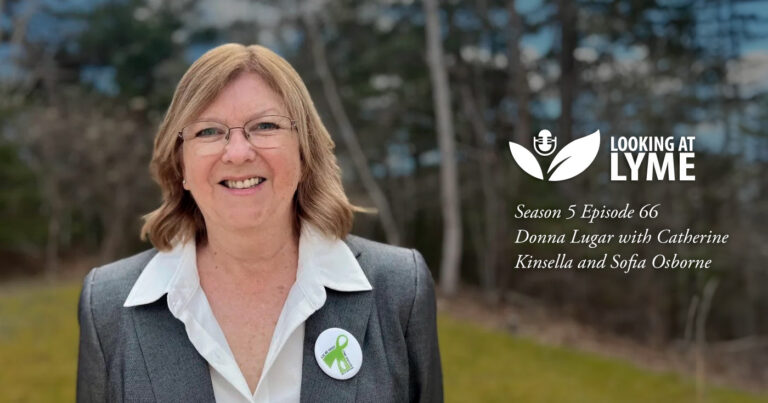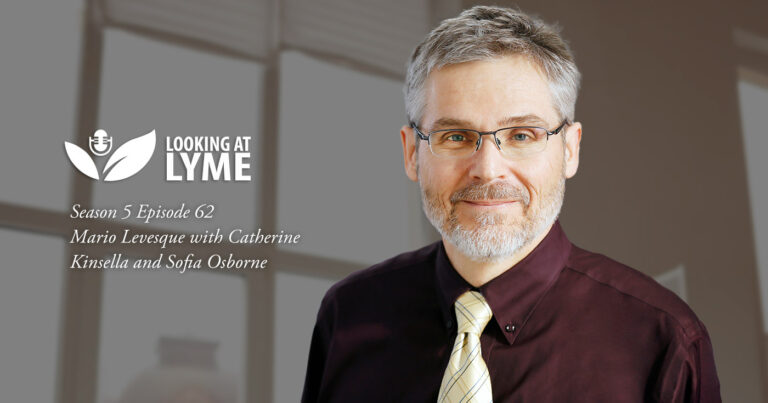66. Advocating for change with Donna Lugar
Nova Scotia Lyme disease advocate Donna Lugar shares her experience educating the public and working to improve Lyme disease policy.
Co-infections, neuroinflammation, vision, MCAS, paediatrics, pain, mental health and more

Nova Scotia Lyme disease advocate Donna Lugar shares her experience educating the public and working to improve Lyme disease policy.

Lyme patients working together to get the healthcare they need.

Posttraumatic growth is not only the topic of today’s podcast, it is also the process that birthed the Looking at Lyme podcast. Sarah explores posttraumatic growth with Dr. Richard Tedeschi, Professor Emeritus of Psychology at the University of North Carolina, faculty member of the Posttraumatic Research Group and distinguished chair of the Boulder Crest Institute for Posttraumatic Growth.

In the words of Optometrist Dr. Cameron McCrodan, “you don’t see with your eyes, you see with your brain.” What is the relationship between the eyes, the brain and some symptoms of Lyme disease? Dr. McCrodan explains that our brains are not only tasked with receiving visual stimuli, they also influence how the information is interpreted and how our eyes function.

Sarah explores the latest research on astrocytes, gut bacteria and neuroinflammation with scientist and medical researcher Dr. Francisco Quintana.

Welcome back to Season 2 of the Looking at Lyme podcast. Buckle your seatbelts, because we are going on a science adventure with Dr. Theoharis Theoharides, Professor of Immunology at Tufts University School of Medicine in Boston.

In this week’s podcast, Sarah speaks with Dr. Thomas Moorcroft, a physician from Connecticut who specializes in Lyme disease and Lyme-related infections. He explains what co-infections are and differentiates between infections that are contracted from a tick bite, and concurrent infections that people with Lyme disease may experience.

In this episode Sarah talks about the effects of Lyme disease on the brain with Dr. Shea, a senior staff psychologist, professor and President of Neuropsychological Evaluation and Treatment Services in New York City and Boston. Dr. Shea starts off by explaining many of the effects that Lyme disease has on the brain including the ability to process information, changes in memory, multitasking and high level reasoning.

In today’s podcast, we start to explore Lyme disease in children. Sarah welcomes her father, Dr. Ted Cormode, to the podcast. He understands Lyme disease both as a pediatrician and as a parent supporting and advocating for his child. Dr. Cormode talks about his experience as a parent when Sarah first became ill. In medical school, he did not learn about Lyme disease so he spent the next years digging deeper into medical research.
Funding grants for healthcare practitioners are available now!